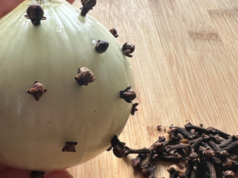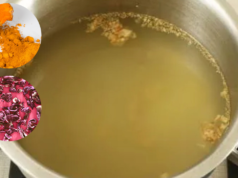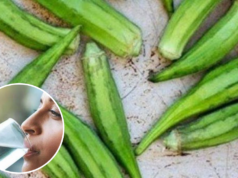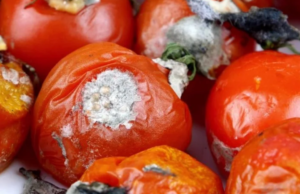Datura Stramonium: A Beautiful But Deadly Plant You Should Know About!
With its enchanting trumpet-shaped flowers and spiky seed pods, Datura Stramonium (also known as thorn apple, jimsonweed, or devil’s trumpet) is as captivating as it is dangerous. 😨 While some cultures have used it for traditional medicine and rituals, its highly toxic nature makes it a serious health risk.
🔎 In this post, we’ll cover:
✔ The botanical features that make Datura Stramonium unique.
✔ The toxic compounds responsible for its dangerous effects.
✔ Why this plant is NOT safe for gardens—especially if you have kids or pets.
✔ How to identify & safely remove it if you find it growing near your home.
Let’s dive into the dark side of this fascinating plant! 👇
🌱 BOTANICAL OVERVIEW: A PLANT OF CONTRASTS
Datura Stramonium belongs to the nightshade family (Solanaceae), alongside tomatoes, potatoes, and deadly nightshade. Originally native to the Americas, it has now spread worldwide, thriving in disturbed soils like roadsides, fields, and even backyards.
🌿 Key Features:
✔ Height – Grows up to 1.5-2 meters tall.
✔ Leaves – Broad, dark green with irregular lobes.
✔ Flowers – Trumpet-shaped, white or pale purple, with a heavy nighttime fragrance.
✔ Seed Pods – Spiky, oval capsules that burst open when mature, releasing small black seeds.
⚠ If you see this plant growing near your home, be cautious—it is highly toxic!
💀 TOXIC COMPOUNDS & EFFECTS
Datura Stramonium contains powerful alkaloids that can disrupt the nervous system:
☠ Atropine – Affects heart rate and vision.
☠ Scopolamine – Causes delirium and hallucinations.
☠ Hyoscyamine – Leads to dry mouth, confusion, and severe agitation.
🚨 Ingesting any part of the plant—leaves, seeds, flowers, or roots—can result in:
❌ Severe hallucinations & delirium
❌ Rapid heartbeat & high fever
❌ Blurred vision & difficulty swallowing
❌ Coma or even death in extreme cases
Even accidental skin contact can cause irritation or poisoning in some individuals. 😨
⚠️ ACCIDENTAL POISONINGS & WHY IT’S A RISKY GARDEN PLANT
Despite its lethal nature, some people unknowingly grow Datura Stramonium as an ornamental plant due to its striking flowers. Others seek it for its hallucinogenic effects—a dangerous and potentially fatal mistake.
🏡 Why you should NOT grow Datura Stramonium in your garden:
🚫 Children & pets are at risk – Its attractive flowers and seed pods can be tempting to touch or eat.
🚫 Toxic even in small amounts – A few seeds can cause serious poisoning.
🚫 Spreads easily – The plant self-seeds aggressively, making it hard to control.
⚠ Did you know? Many cases of accidental poisoning occur because people mistake its leaves for edible greens or its seeds for harmless plant seeds!
🛑 HOW TO IDENTIFY & REMOVE DATURA SAFELY
If you suspect this plant is growing near your home, act fast to prevent accidental exposure!
🔍 How to identify it:
✅ Look for its large, white or pale purple trumpet-like flowers.
✅ Check the leaves—they are broad, lobed, and dark green.
✅ Notice the seed pods—they are spiky, oval, and burst open when ripe.
🛠 Safe Removal Steps:
✔ Wear gloves – Avoid direct skin contact.
✔ Uproot the plant completely – Make sure to remove roots, flowers, and seeds.
✔ Dispose of it properly – Do NOT compost; burn it or place it in a sealed trash bag.
✔ Wash your hands & tools thoroughly after handling.
🚨 If someone accidentally touches or ingests Datura Stramonium, seek medical help immediately!
🌿 FINAL THOUGHTS: A DEADLY BEAUTY
Datura Stramonium is a plant of contradictions—breathtakingly beautiful, yet dangerously toxic. While it has been used in medicine and folklore, its high risk of poisoning makes it an unsafe choice for gardens and landscapes.
💬 Have you ever encountered Datura Stramonium? What are your thoughts on this mysterious plant? Drop your experiences in the comments below!









